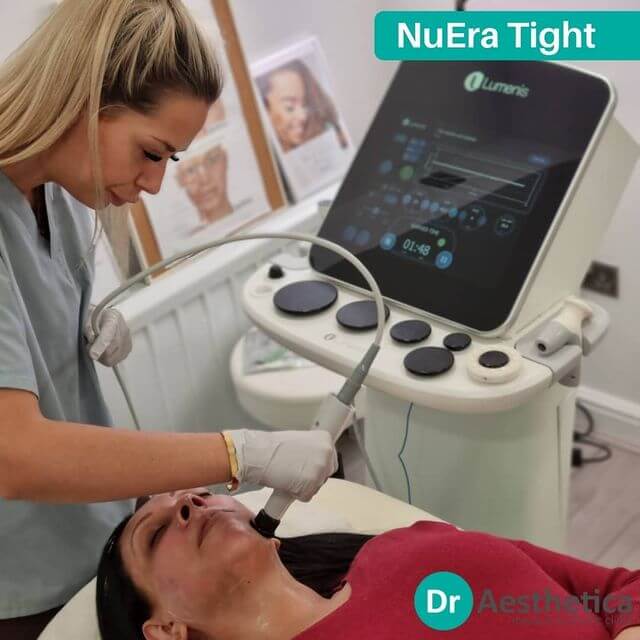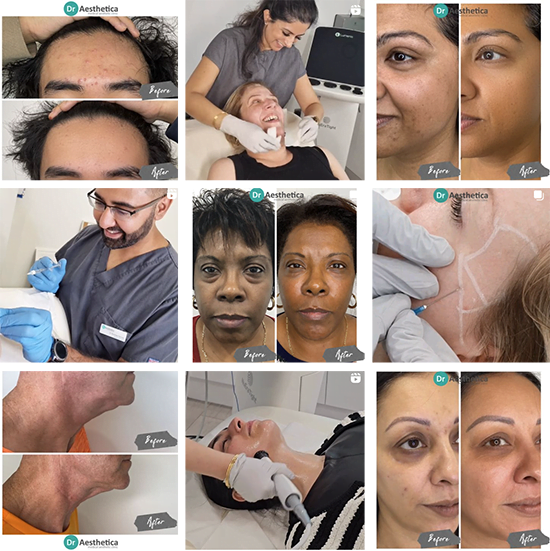So you want to maintain a youthful, supple and vibrant complexion? Knowing the following skincare terms will help you to understand what your skin needs and how to make the best decisions for your unique skincare concerns.
These terms frequently appear on product labels and in professional treatments offered by skin-care experts
Active Ingredient
Generally speaking, this is an ingredient within a skincare product that has been scientifically proven to address the skin concern the product is meant to target.
That's not to say that the other ingredients (the inactive) are useless; often, they are there to help the active ingredient perform its role.
Once you understand the role of different active ingredients, it's possible to create a personalised skincare regimen for your skin type and any skin issues you may have.
Let's quickly define 3 common active ingredients found in skincare products. Keep in mind that some beauty brands tend to make bold claims about the efficacy of their active ingredients.
Just because a celebrity uses it and it costs a lot more doesn't mean it will provide superior results. Always do your research and read the reviews first.
Alpha-hydroxy acids (AHA)
This active ingredient is a gentle chemical exfoliant, i.e. it removes the dead cells from your skin without the need for physical scrubbing. AHAs come in many different forms, such as lactic and glycolic acid, which are derived from natural sources such as milk and fruit sugars, respectively. Alpha-hydroxy acids are mainly used in cleansers, exfoliants and toners.
Hyaluronic acid:
Hyaluronic acid is easily one of the most popular active ingredients available in the market today. It has an incredible ability to absorb and retain moisture within the skin. A hyaluronic acid molecule can hold up to 1000 times its weight in water. The result? Super hydrated and supple skin. Two of our top in-office treatments at Dr Aesthetica, Profhilo and Dermal Filler, use HA as their active ingredient.
Retinol
This derivative of Vitamin A is a powerhouse active ingredient due to its ability to reverse skin damage and minimise signs of ageing. It's recommended to incorporate a quality topical retinol into your skincare routine before you turn 30. If it's your first time using retinol, keep the concentration low (0.01% has been proven to be effective for daily use). Once your skin gets accustomed to the retinol, you can slowly increase the percentage.

Broad Spectrum & SPF
Being able to decipher these terms will help you choose a sunscreen that gives you the protection you expect.
Broad-spectrum describes a sunscreen that can protect you from both the sun’s harmful ultraviolet A (UVA) and ultraviolet B (UVB) rays.
Sun Protection Factor (SPF) is how well a sunscreen can filter out UVB rays, the chief culprit behind skin reddening and sunburn.
On the other hand, UVA rays are primarily responsible for premature skin ageing as they penetrate more deeply into the skin than UVB radiation.
Unlike UVB rays which are more intense during summer, UVA rays are present at fairly consistent levels throughout daylight hours all year round.
This is why you need to wear a broad spectrum anytime you go outside.
So, does SPF of 50 provides almost double the protection as SPF 30? First, no sunscreen can filter out 100% of the sun’s UVB rays. SPF 30 blocks 97% of UVB rays while SPF 50 blocks only a percentage more (98%)
Collagen
If you’ve ever searched for an anti-ageing skincare product, there’s no doubt you’ve heard of collagen.
Collagen is the most abundant protein in the human body, making up from 25% to 35% of the body’s protein content.
Found abundantly in the connective tissue of the dermis, it plays the critical role of providing strength and elasticity to the skin.
But as you age, your collagen production drops off, and the collagen you already have starts to break down.
Addressing most telltale signs of ageing means addressing collagen loss in one way or another. No wonder countless products claim to “replenish collagen” or “boost collagen production” in the skin.
So, can a moisturiser or supplement really help your skin cells produce more collagen?
The answer is no. If you want to actually “boost collagen production”, you are better off opting for an in-office treatment like Microneedling.
Growth Factors
These are large proteins that float between cells communicating crucial messages that activate the cell to do things, like regenerate, produce more collagen, or increase blood flow to the skin.But by our late 20s, the skin starts producing smaller quantities of growth factors — resulting in less cell turnover, thinner, duller skin complexion and all the other inevitable effects of ageing.
But growth factors, especially when applied after a Microneedling treatment, can help revive some of these processes that support healthy, youthful-looking skin. Also, suppose your skin is too sensitive to tolerate retinol. In that case, growth factors can be a substitute to stimulate collagen, even out skin tone, and improve skin complexion with much less risk for irritation.
Radiofrequency
The implementation of cutting edge technology in skincare has given rise to a new generation of advanced anti-ageing treatments like radiofrequency.
Remember collagen from a few paragraphs ago? Radiofrequency is all about stimulating collagen production.
While you can't simply 'feed' more collagen into the skin, you can trigger fibroblasts (the cells responsible for producing collagen) to work overtime.
The electromagnetic energy from the radiofrequency device causes your body to release heat-shock proteins.
One of the roles of heat shock proteins is to help newly or improperly formed proteins fold into their correct shape, a critical step in synthesising new collagen.
This process happens in the weeks and months following your treatment.
Radiofrequency also contracts the collagen fibres, resulting in an immediate & impressive skin-tightening effect. This means the results are both instant and accumulative—a winning combination!
If that's not enough, radiofrequency also boosts the oxygen levels in the skin as well as cell turnover, i.e. the rate at which the skin gets rid of dead cells and replaces them with new ones.
That's why we highly recommend NuEra Tight radiofrequency skin tightening for anyone experiencing loss of firmness and dullness in their skin.

Free Radicals
Have you ever taken a bite out of an apple and left it out in the air? That brown colour it turns results from oxidation caused by free radicals.
A similar process occurs in our skin but over many years rather than minutes. A simplified definition of free radical is an unstable atom that has lost an electron. Consequently, it scavenges around the body, looking for another electron to “steal” and form a stable pair.
This causes oxidative stress, damaging cell membrane, proteins like collagen and DNA. That’s why free radicals are a major contributor to premature skin ageing. Sadly, free radicals are anywhere, and you can be exposed to them in several ways. Your own body even produces free radicals as a byproduct of your metabolism and as part of the natural ageing process.
While avoiding total exposure to free radicals is next to impossible, you can take a few precautions to protect your skin. First, minimise your exposure to the significant free radical triggers like air pollution, overexposure to UV light, smoking and poor nutrition. Also, make sure to load up on antioxidants.
Antioxidant
Antioxidants are compounds that bind to free radicals, preventing them from binding to your healthy cells and damaging them.When you apply antioxidants topically, you can counteract the damaging effects of free radicals.
For example, L-Ascorbic Acid, more commonly known as Vitamin C, has powerful antioxidant properties that defend the skin from UV rays and pollution.
As for what skin products to use, we recommend using a Vitamin C serum as it usually has a higher concentration of active ingredients and tends to penetrate more quickly into the skin. Use it in your morning skincare routine to make the most of its ability to prevent UV damage and inhibit hyperpigmentation—and always follow it with a broad spectrum SPF 30+ sunscreen.
There you have it! Ten skincare terms that have the potential to totally transform your skincare habits and leave your skin glowing long into your golden years!



